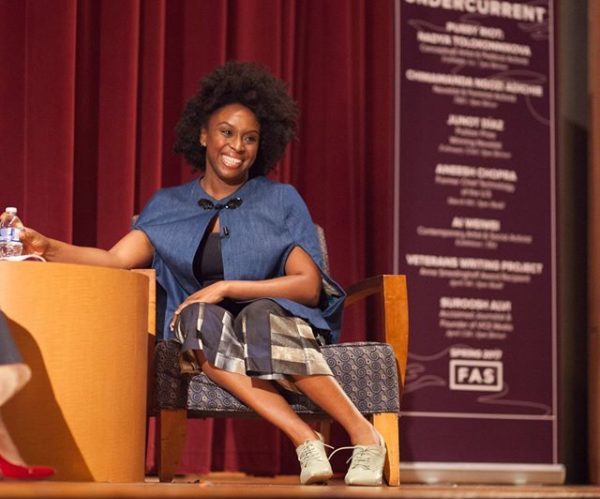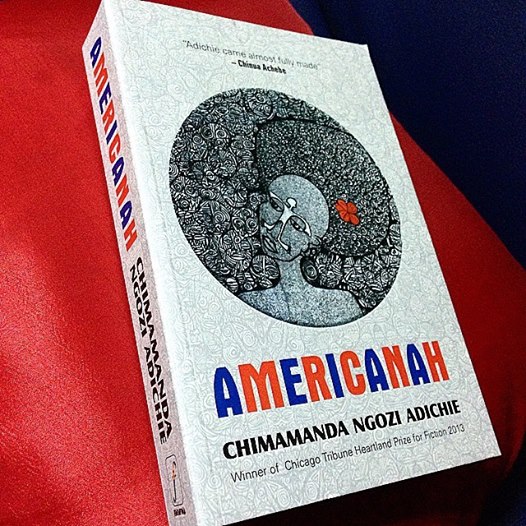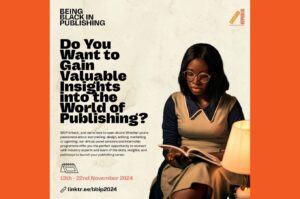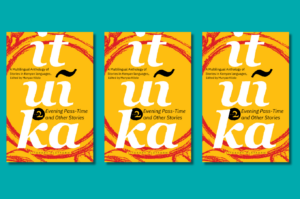
Chimamanda Ngozi Adichie will be receiving an honourary PhD from Duke University on May 13, alongside five other dignitaries: General Motors Chairman and CEO Mary Barra; former Durham Mayor William Bell; Smithsonian National Museum lead architect Phil Freelon; Harvard Medical School professor Dr. William Kaelin; and attorney and community leader Russell M. Robinson II. The awards is part of Duke University’s Commencement, which will feature an address by Apple CEO Tim Cook.
“Duke is proud to recognize the contributions that this distinguished group has made to society,” said Duke President Vincent E. Price. “They each have been bold leaders in their respective fields, and their work has enriched and improved our lives. I am delighted to have the honor of awarding their degrees, and I am certain that the graduating Class of 2018 will be inspired by their example.”
Americanah was selected as the first-year summer reading assignment for Duke’s Class of 2018. Before that, on a 2013 visit to the university, she was interviewed by our editor Ainehi Edoro. Check out photos of that visit HERE.

The announcement comes days after Americanah was listed by The New York Times‘ in their “The New Vanguard” list of “15 remarkable books by women that are shaping the way we read and write fiction in the 21st century.” The list was compiled by three of the newspaper’s book reviewers: Dwight Garner, Parul Sehgal and
If you were paying attention, you might have seen this book coming. Chimamanda Ngozi Adichie’s first novel, “Purple Hibiscus,” was longlisted for the Man Booker Prize. Her second, “Half of a Yellow Sun,” won the Orange Prize. In 2008, she was awarded a MacArthur “genius” grant. But “Americanah” more than paid off on this writer’s promise. It’s a resonant and fiercely intellectual novel about a Nigerian woman named Ifemelu who leaves Africa for America and suffers here before starting a blog called “Raceteenth or Various Observations About American Blacks (Those Formerly Known as Negroes) by a Non-American Black” and winning a fellowship at Princeton. Adichie works both high and low; she’s as adept at dissecting internet and hair salon culture as she is at parsing the overlapping and ever-changing meanings of class and race in the United States. “Americanah” brings news, on many fronts, about how a new generation of immigrants is making its way in the world. It has lessons for every human about how to live.
— Dwight Garner.
See the other books selected—including Zadie Smith’s NW, Elena Ferrante’s Neapolitan novels, Han Kang’s The Vegetarian, Carmen Maria Machado’s Her Body and Other Parties, Ottessa Moshfegh’s Homesick for Another World, and Jesmyn Ward’s Salvage the Bones—HERE.
Here is our 2017 editorial on how Americanah has become Adichie’s signature novel.
Congratulations to the ever-rocking Adichie.









Sbee March 12, 2018 13:37
I'm happy for Chimamanda. One of my favourite writers of all time. I be read half of a yellow sun thrice and have just finished reading Americanah a second time. Both were extremely well written and very perceptively done for someone so young at the time. But I think Americanah has sparked controversy among native black Americans who now see continental African immigrants as disloyal to their cause. American black are also uncreasingly seeing Africans being used by white society and white supremacists as a wedge between them and so called mainstream white American society. I think Chimamanda novel in no little measure may have contributed to influencing both sides of the American racial divide in how they see and view African migrants to the US. Africans are usually considered by black Americans as quite disloyal to black causes and struggle, ready to sell themselves to white supremacists for a bowl of porridge and willingly condescending towards the slave experience and overall repression of the descendants of African stage. There is an increasing tendency now for black Americans to want to re-define themselves away from their African roots. On the other hand African immigrants and their descendants are increasingly being favoured by the white establishment in things like employment, film and education over native blacks. Perhaps because they are not seen to have a chip on their shoulder, are hungry for succeed and apply themselves harder. But I think disentangling oneself from the black cause in America is a big mistake largely because within 2 or 3 generations the offsprings of Nigerian-American and other continental Africans will be indistinguishable from their native African American counterparts and will be eventually subject to same racist practices of the American establishment. Allowing themselves to be used as a fifth column in murky American race politics will not favour the offspring of continental African immigrants. You're likely to become African American within 2 generations more so with the fact that Africans often encourage their children abandon their native cultures and language in favour of adopting an ersatz pseudo Western culture and the English language, this ensuring that their children become rootless and lost from the 3rd generation downwards. This is a sad and sorry state of affairs but also points to the need for Africans to lead the way in forging black solidarity and economic development within the wider black community which can in turn be strengthened to address past historical and racial injustices. But I'm afraid most Africans landing on the shores of America are only too willing to give up their cultural identities in favour of being an American. Whatever that means.